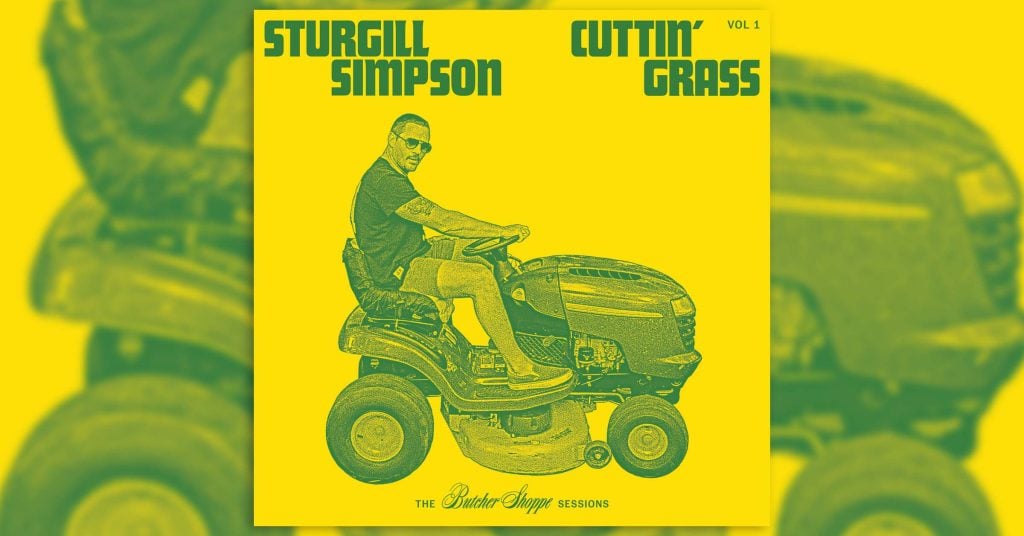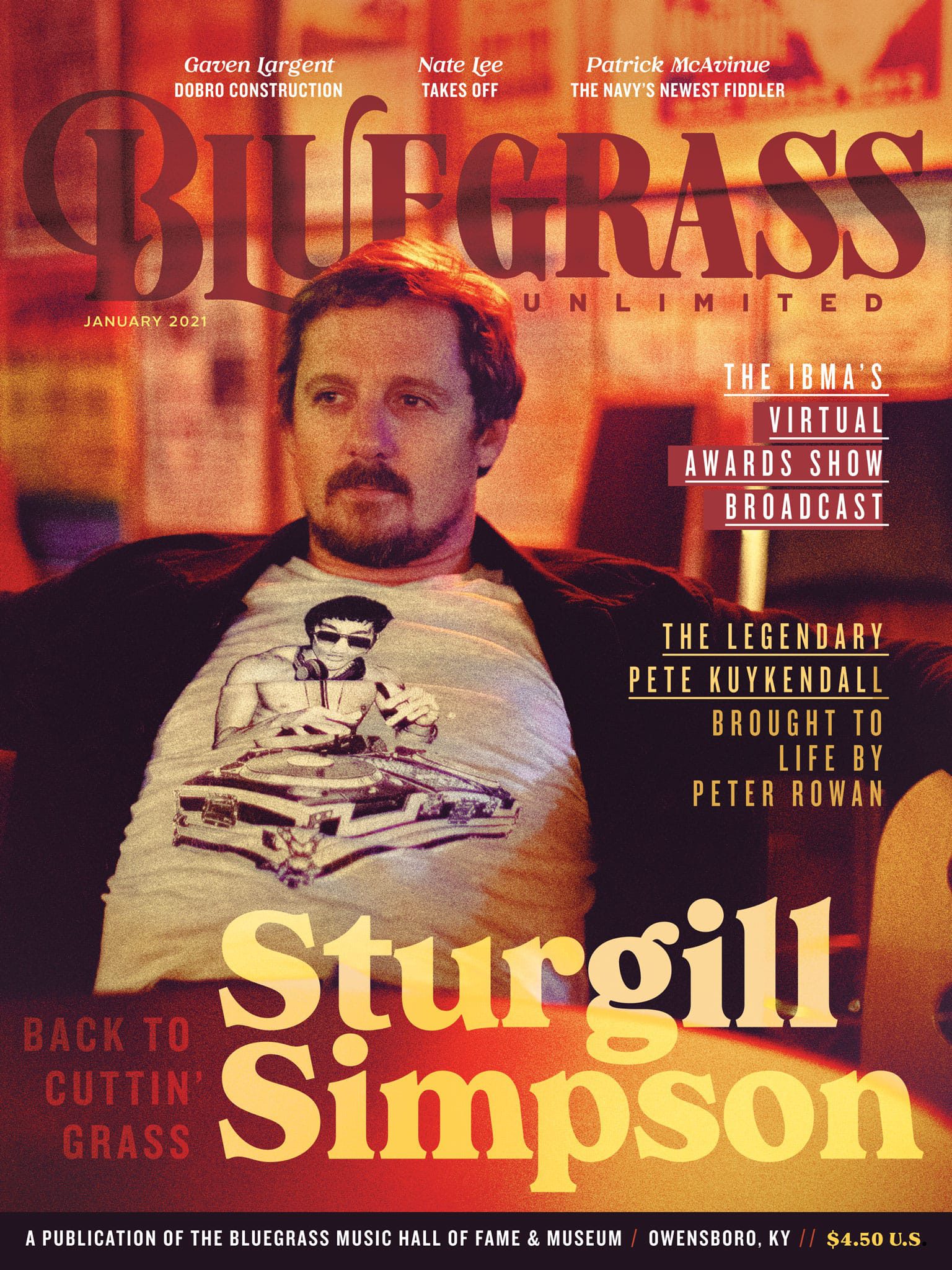Cuttin’ Grass
Sturgill Simpson comes by his bluegrass honestly. Introduced to the style by his paternal grandfather, Simpson emerged a total bluegrass freak by his 20s and was writing bluegrass songs even while making a living playing punk rock.
Simpson’s latest CD confirms that passion. In his letter on savingcountrymusic.com explaining his return to his bluegrass roots, Simpson writes, “I was driving down the road one day and the public radio station played an old Monroe Brothers song and it absolutely floored me. A wave of emotion slammed me in the chest and I had to pull over on the side of the road. It sounded like home. Bluegrass music is healing. I truly believe this to be true. It is made from ancient, organic tones and, as with most all forms of music, the vibrations and the pulse can be extremely therapeutic.”
Healing, being open to love and to life, getting over anger, and living a well-examined life form the bedrock of Simpson’s introspective songwriting. He eschews hatred or resentment, revealing instead roads to recovery and redemption. It’s probably why he chose “Breakers Roar” for his Stephen Colbert’s CBS Late Show gig, where he implores the listener to “open your heart, find love all around.” And can anyone even imagine Monroe writing or singing a song with an opening line like, “Well, I woke up today and decided to kill my ego” as Simpson does on “Just Let Go”?
Quite deliberately, Simpson’s tunes are rhythmically and melodically simple, but seldom simplistic or cliched. He sets a well-measured rhythm on guitar, and the band here melds into place like a peach cobbler, all driven by Mike Bubb’s immaculate bass groove.
Uptempo tunes like “Sometimes Wine,” “Railroad of Sin” and others here are perhaps destined to become jam session favorites. “Long White Line,” the CD’s only non-original tune, sprouts a welcome new branch on the truck driving man bluegrass tree watered by Jimmy Martin on Widow Maker and countless others. And “Life Ain’t Fair Is Mean” sounds like a sure-fire hit.
As a beyond-seasoned road warrior, Simpson’s masterful stage presence makes this project run like a well-tuned diesel. Singing in a voice sounding like a CRISPR-edited amalgam of Waylon Jennings, Gregg Allman and Dan Tyminski, there’s never a moment when Simpson sounds anything less than fully committed.
Backing Simpson we find a cadre of IBMA-winning talent, with Scott Vestal on banjo, the unbreakable rock that is Stuart Duncan on fiddle, and Tim O’Brien on guitar and high mountain harmony vocals. But the standout is Sierra Hull, who reins in her hard-earned Berklee School of Music knowledge to perfectly suit this project. Again and again, she decorates Cuttin’ Grass with gorgeous bluegrass mandolin intros, solos and backup straight out of Doyle Lawson’s Tennessee Dream era, with a bit of Herschel Sizemore sprinkled in perhaps. And her ethereal backup vocals on tunes like “I Don’t Mind” can be downright chilling.
Cuttin’ Grass is not cutting-edge bluegrass, by any measure. But in the hands of Simpson and this splendid assemblage of bluegrass true believers, this CD shines like winter’s full moonlight in the Smokies. Much like contemporaries such as Billy Strings, Simpson’s songs embrace a path forward out of our current plight, bestowing listeners with a philosophy of hope, growth and resurgence, presented in a true-life blues bluegrass manner. That’s a gift we can all be grateful for right about now.

